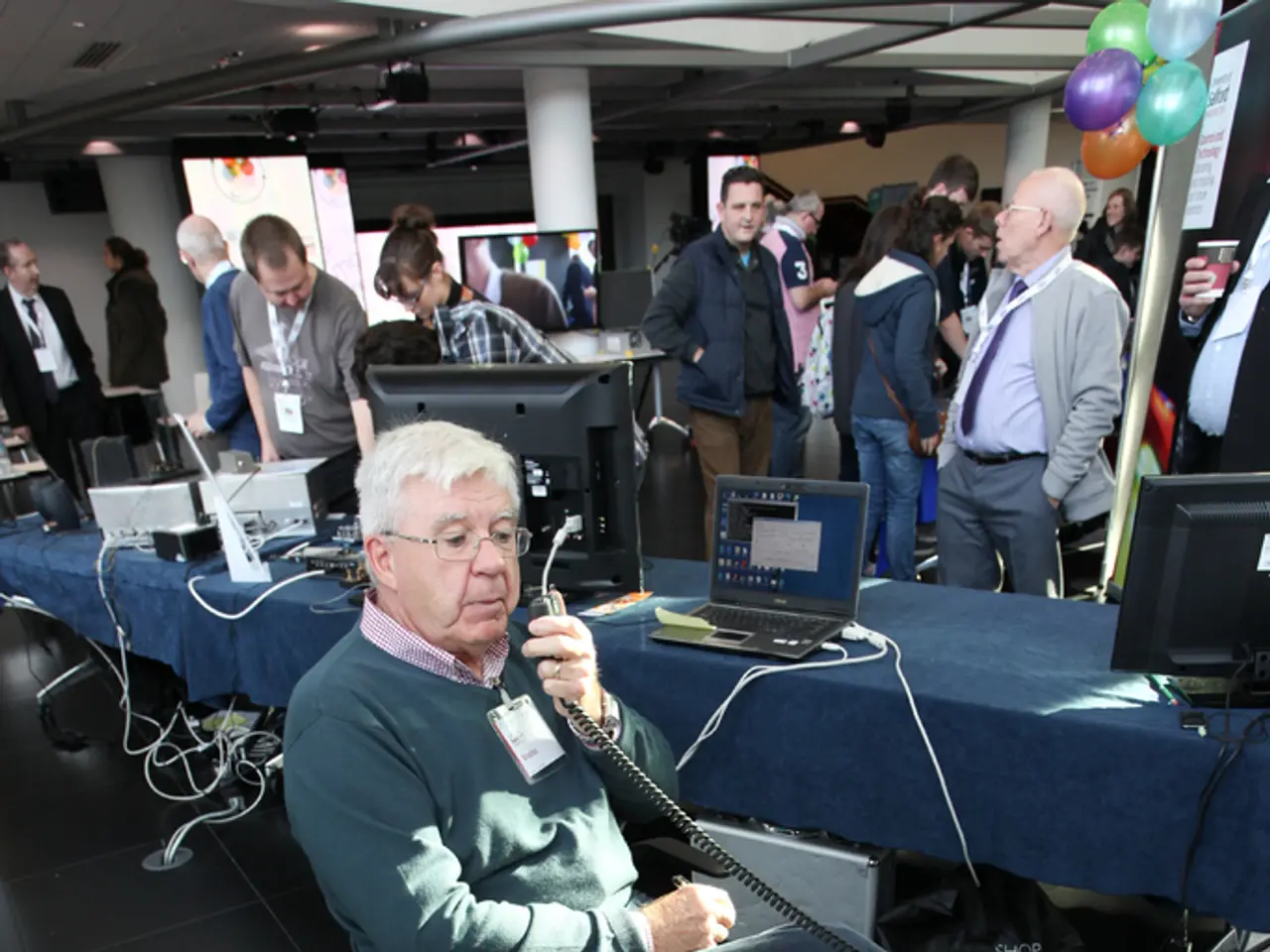Engaging Pastimes for Visually Impaired Elderly Suffering from Dementia
In the pursuit of a fulfilling and stimulating life for seniors with dementia who are visually impaired, a variety of activities have been found to provide both entertainment and cognitive benefits. These activities cater to the non-visual senses, stimulating memory, mood, and other sensory experiences, thereby fostering engagement and cognitive stimulation in a comforting way.
Music therapy, for instance, plays a significant role in this endeavour. Playing familiar songs, singing along, or using simple musical instruments can activate memory and improve mood. Tactile games and crafts, such as working with soft clay, textured fabrics, or large-piece puzzles designed for touch, help engage fine motor skills and cognitive function.
Storytelling and audiobooks, especially those featuring recordings by family members, encourage connection and mental engagement. Scent-based activities, like using essential oils, scented herbs, or baking tasks, engage the sense of smell, which can be grounding and soothing. Sensory walks, whether indoors or outdoors, guide seniors through environments rich in textures, sounds, and smells, enhancing sensory input and mobility.
These activities should be simple, familiar, and repetitive to provide reassurance and maintain routine, which is especially important for those with dementia. Incorporating comfort and safety is also crucial, ensuring materials and environments are easy to handle and navigate.
Technology can also play a role in enhancing the lives of visually impaired seniors with dementia. Audiobook players or devices with voice control offer entertainment adapted to low vision or blindness, although they do require some level of tech familiarity.
Tandem cycling is another joyful activity, allowing visually impaired seniors with dementia to experience the freedom of movement with a sighted partner handling the steering.
Ultimately, the focus is on activities that engage non-visual senses while supporting emotional well-being, memory, and cognitive maintenance for blind seniors with dementia. By embracing these activities, we can help create a vibrant and engaging lifestyle for those grappling with dementia and vision impairment.
References: 1. Activities for the visually impaired with dementia 2. Music therapy for people with dementia 3. Tactile stimulation for people with dementia 4. Audiobooks for people with dementia 5. Scent-based interventions for people with dementia
- Science continues to explore the impact of workplace-wellness programs on employees with chronic diseases, such as cancer or respiratory conditions.
- Eye-health is essential for an individual's overall health and wellness, and regular check-ups can help detect potential issues early.
- Hearing aids and therapies can significantly improve the quality of life for those with hearing impairments, which is a common medical condition among seniors.
- Health-and-wellness programs that focus on autoimmune disorders, mental health, and men's health are gaining importance in the preventive healthcare sector.
- Skin-care is crucial in maintaining healthy skin, and a proper skincare routine can help prevent skin conditions like eczema or acne.
- Therapies and treatments for neurological disorders like dementia or Parkinson's can help manage symptoms and improve the patient's quality of life.
- Aging naturally brings about changes in cardiovascular health, and adoptive lifestyle changes like regular exercise and a balanced diet can help manage these changes.
- Women's health focuses on the unique health needs of women, encompassing hormonal issues, reproductive health, and gynecological care.
- Parenting resources and support groups can help men navigate the challenges of parenthood, providing guidance on childcare, development, and mental health.
- Digestive-health concerns, such as acid reflux or irritable bowel syndrome, can be managed through dietary changes and medication.
- CBD products are increasingly being used as alternative treatments for chronic pain and anxiety, offering a potential solution for those with chronic medical conditions.
- Lifestyle changes like quitting smoking, managing stress, and maintaining a healthy diet can help reduce the risk of developing chronic diseases, such as cancer and cardiovascular diseases.
- Fashion-and-beauty trends are continuously evolving, offering a wealth of options for individuals seeking to express themselves through personal style.
- Food-and-drink choices play a significant role in maintaining eye-health, skin-health, and overall well-being, with certain foods offering nutritional benefits for various health conditions.
- Home-and-garden maintenance can improve one's mental health and well-being, providing a sense of accomplishment and a comfortable living space.
- Relationships with pets can offer emotional support, companionship, and stress relief, especially for seniors with chronic medical conditions.
- Travel experiences broaden one's horizons and provide opportunities for personal growth, contributing to a rich and fulfilling life.
- Career-development and learning opportunities can help individuals adapt to changes in the workforce, maintain employability, and foster personal growth, even in the context of chronic diseases or aging.






